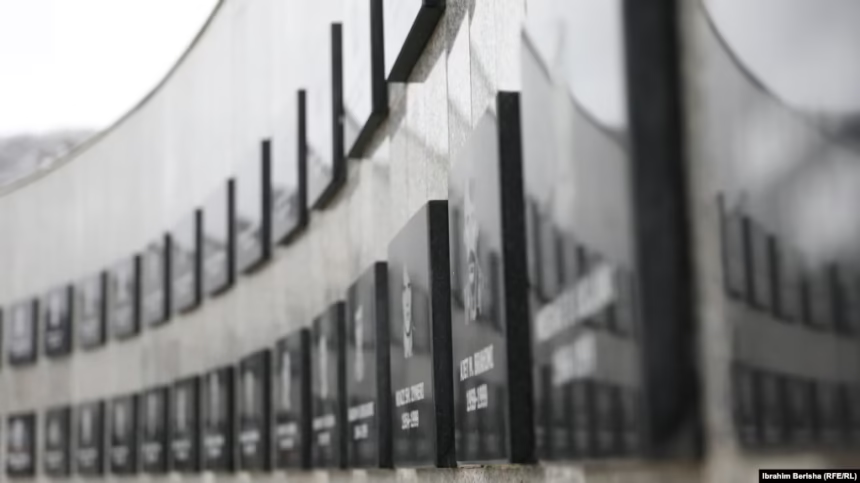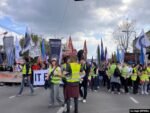Kosovo continues its efforts to deliver justice for war crimes committed during the 1998–1999 war, despite facing significant institutional and logistical challenges, reports RFE.
According to a new report published on April 4 by the Humanitarian Law Center Kosovo (HLCK), Kosovo prosecuted 35 war crimes cases in 2024—34 against 98 members of Serbian forces and one against two former KLA fighters.
The report’s author, Amer Alija, called these efforts commendable but insufficient.
“Only 74 individuals have been convicted of war crimes in Kosovo since the war ended, while over 13,000 civilians were killed and more than 1,600 remain missing,” he said during the report’s presentation in Prishtina.
Alija urged Kosovo’s justice institutions—including the Ministry of Justice, the Special Prosecution Office, the Basic Court in Prishtina, and Kosovo Police—to address pressing shortcomings, particularly the delays caused by a lack of translation into Serbian.
Ilir Morina, head of the war crimes department at the Special Prosecution, confirmed that the shortage of professional translators continues to stall court proceedings.
“Even when we issue job postings, there is very little interest,” he said.
Albina Shabani-Rama, President of the Basic Court in Prishtina, added that the Special Department handling war crimes is overwhelmed, and judges specialized in such cases are also assigned to complex corruption and terrorism cases, leaving no capacity to form dedicated war crimes panels.
In 2024, 14 indictments in absentia were filed against 72 members of Serbian forces. The first conviction in absentia came late last year, sentencing Čedomir Aksić to 15 years in prison.
While these trials mark a significant step forward, the HLCK expressed concerns that trials in absentia may violate the fundamental rights of the accused, especially if they are unaware of the proceedings.
Cross-border cooperation remains a major hurdle. Kosovo prosecutors are often unable to access suspects who flee to Serbia. One such case involved a suspect living in Switzerland who relocated to Serbia immediately after indictment—effectively placing him beyond the reach of Kosovo authorities.
The HLCK recommended the signing of bilateral protocols for cooperation between the special prosecution offices of Kosovo and Serbia as part of the broader normalization dialogue.
Swiss Embassy representative Sarah Jaquiery welcomed the report and emphasized that Kosovo must implement HLCK’s recommendations, including regional cooperation, Serbian-language translation, courtroom recordings, and the establishment of a comprehensive war crimes database.
“Justice is not optional—it is a necessity. Every victim deserves justice,” Jaquiery concluded.







